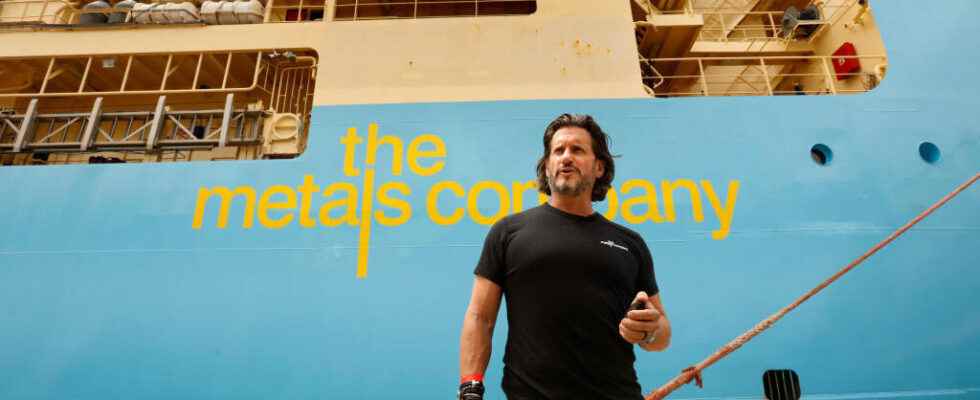Canadian mining company The Metals Company was filmed dumping its waste overboard. However, this company is today the only one able to exploit the mineral resources of the deep seabed, including precious rare metals.
In the video broadcast by MinesWatch Canada, Greenpeace International and the Deep Sea Mining Campaign, a boat from the Canadian company The Metals Company (TMC). There escapes an uninterrupted stream of brown water, it flows directly into the Pacific Ocean. The footage was filmed by scientists aboard company-owned vessels as it tested its deep-sea mining technology in the Clarion Clipperton area. These are the discharges from the mining of the seabed by society.
Sandal on the high seas.
Whistleblower scientists were on the boat from @TheMetalCo, the Canadian mining company that carried out the first seabed mining test. They raise the alarm by sending us these videos. pic.twitter.com/Ej9KAQ956v
— CamilleEtienne (@CamilleEtienne_) January 11, 2023
► To read also: Deep-sea mining: “we can’t talk about sustainable exploitation, anyway”
” Normally, mining companies are supposed to send their waste to the deep, explains Anne-Sophie Roux, from the Sustainable Ocean Alliance. In fact, concretely, the boat on the surface is connected to the machine at the very bottom at 4,000 meters deep by a huge pipe. A first pipe brings up all the precious metals and a second pipe goes down to the depths through which they are supposed to return the waste. Precisely because scientists don’t have enough perspective on the impacts it can have on the surface. As a result, we see that the company does not even respect the few rules imposed on it. »
The conduct of operations by The Metals Company is, however, observed from all sides. It is indeed the only company to have a deep-sea mining permit, a test validated by the International Seabed Authority while the development of a dedicated mining code is underway. Heavy negotiations, as the consequences on these still preserved areas can be important and the stakes important while the abyss could represent a potential windfall with the explosion of battery needs. It is for this reason that more and more countries, including France, are calling for a moratorium on the subject.
► To read also: Rare earths: the “largest known deposit” in Europe would have been discovered in Sweden
